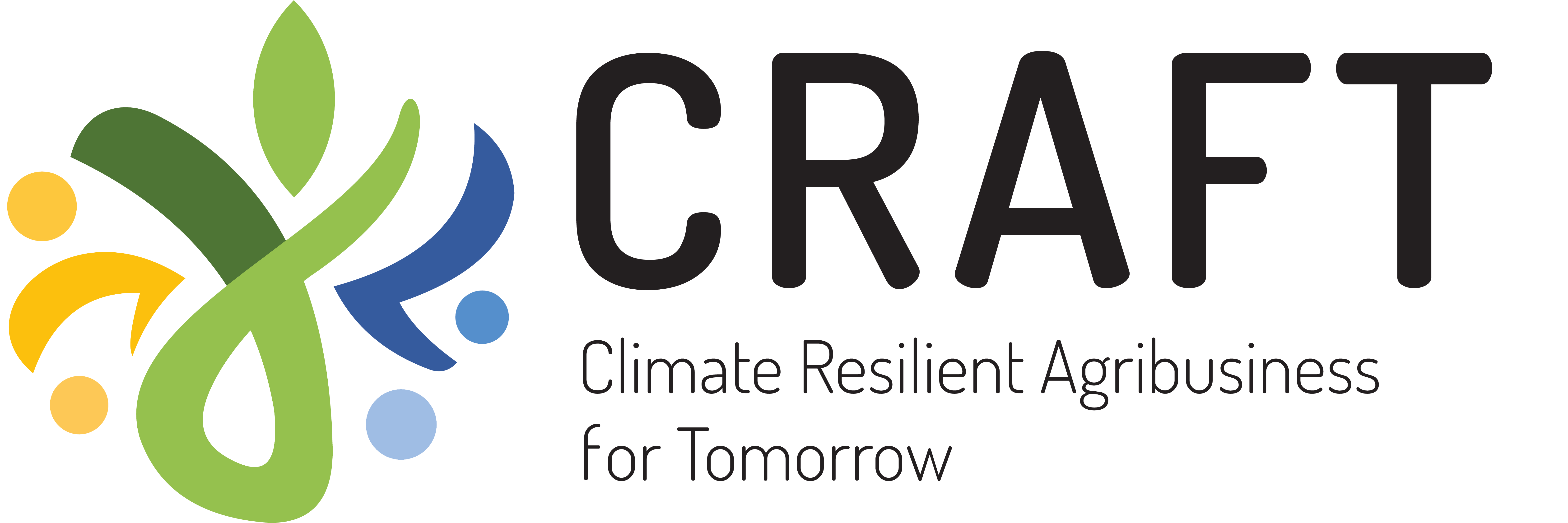In East Africa, where smallholder farmers are responsible for 70 percent of total agricultural production, the Climate Resilient Agribusiness for Tomorrow (CRAFT) Project is promoting access to financial services like crop insurance as a reliable risk mitigation instrument for coping with climate-related hazards such as prolonged droughts, floods, climate change induced pests and diseases, as well as other unpredictable weather events.
Family-owned company signs up smallholder farmers with insurance.
The connection between crop insurance and climate resilient smallholder farmers is demonstrated by the success story of Kibaigwa Flour Supplies Limited – a Tanzania based family-owned white sorghum processing company.
So far, the agribusiness has signed up over 130 farmers from Kongwa District in Dodoma region for multi peril crop insurance as a pilot with Reliance Insurance Company and Tanzania Breweries Ltd. Each farmer pays about USD 9 as the premium cover per acre, to recoup over 80 percent of lost production value through the insurance policy, mitigating the impact of the climate disaster and making smallholders more financially resilient.
“With the support of CRAFT, we conduct trainings intended to introduce smallholder farmers to the concept of farming as a business, with a particular focus on how they can mitigate the risks that are associated with climate change through crop insurance. Like any other business, the farmer needs to know what is required of them to get started, how the insurance policy works, and the risks it covers,’’ says Cosmas Ngunga, an agronomist with Reliance Insurance Company.
“The only challenge is that these benefits are not widely known among smallholder farmers, and even for those who are aware of the benefits, the cost of the insurance premium is often a barrier,’’ he adds.
To address the above challenge, Reliance Insurance Company has trained and licensed crop insurance agents who market crop insurance products, assess, and document risks, and inspect smallholder fields thrice during the growing season to track production and substantiate any subsequent claims made by smallholders against their insurance policy.
“Due to a prolonged drought, I only harvested four bags from my two-acre sorghum plot. This is less than what I expected but because I have insurance, I am confident that the Company will cover the losses,” shares Mariamu Diamond Kisalula, a 38-year-old smallholder from Visume Village. Mariamu’s experiences are no different from Leonard Yolam’s – who recently secured his two acres of sorghum through Reliance.
“I had a good harvest this season so I don't need a payout, but had it not worked out in my favour, I would have worried less since I have insurance cover,’’ says the 33-year-old smallholder.
The above testimonies are a representation of many farmers across the three countries where CRAFT is working with agriSMEs and cooperatives to de-risk their investments.
Written by: Sandra Nassali (CRAFT Communications Officer)
Climate Resilient Agribusiness for Tomorrow (CRAFT) is a five-year project, implemented in Kenya, Tanzania and Uganda with focus on three pillars; increasing adoption of climate smart practices and technologies amongst farmers and agro-enterprises; increasing investments and business growth in climate smart value chains; and creating enabling environment necessary to ensure large-scale roll-out of market driven climate smart agriculture. The project is passionate about women and youth inclusion as one of the indicators seeks to increase the number of women and youth employed in the private sector. The cross-cutting workstream for gender and youth inclusion emphasizes targeted interventions where needed, to ensure equity and inclusion through a sustainable gender sensitive climate smart service provision.









